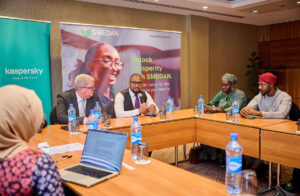Labour Minister remains a central figure in Nigeria’s journey toward economic stability and social progress. Through his leadership, the Ministry of Labour and Employment continues to focus on creating opportunities, strengthening workplace harmony, and protecting the rights of Nigerian workers. His vision combines practical reforms with human-centered policies, ensuring that the workforce does not just survive but thrives.
The minister has been working to balance the needs of employers and employees in a rapidly changing economy. With industries shifting due to technology, global competition, and new trade agreements, Nigeria requires a labour system that can adapt. Therefore, he has prioritized reforms that modernize the workplace while still safeguarding fairness and justice. Workers must feel valued, and employers must enjoy conditions that support growth. The balance between these interests defines the progress of any nation.
One of his most important efforts involves job creation. Unemployment remains a critical challenge, especially among young people. To address this, the minister continues to champion skills development and vocational training. By empowering young Nigerians with market-ready skills, the Ministry aims to reduce unemployment and build an adaptable workforce. These initiatives encourage young people to see work not only as a means of survival but also as a pathway to fulfillment and dignity.
Moreover, the Labour Minister has emphasized social dialogue as a key tool for resolving disputes. In a country as diverse as Nigeria, disagreements between unions, employers, and government can easily arise. However, he continues to encourage negotiation, dialogue, and mutual respect. Transitioning away from conflict toward collaboration remains central to his strategy. The result is a more peaceful industrial climate that attracts investors and builds trust among stakeholders.
He has also shown commitment to international labour standards. By aligning Nigeria’s policies with global best practices, the Ministry ensures that Nigerian workers enjoy protection in line with international expectations. This step strengthens the reputation of Nigeria as a reliable partner for business and investment. It also assures citizens that their rights are recognized beyond domestic boundaries.
In addition, reforms under his watch have targeted the informal sector. Millions of Nigerians earn their living outside formal employment structures. For too long, these workers lacked protection, recognition, or access to benefits. The Labour Minister has taken steps to integrate them into the national labour framework. By doing so, he acknowledges their contribution and ensures they are not left behind. This inclusion strengthens the economy and uplifts millions of households.
Transitioning into the future, the Labour Minister envisions a workforce that is innovative, skilled, and globally competitive. He understands that Nigeria’s population is its greatest asset. Therefore, policies must harness that potential through training, fairness, and opportunity. By creating a fair and empowering environment, the Ministry of Labour and Employment can serve as a cornerstone of national growth.
In conclusion, Labour Minister plays a vital role in shaping the destiny of Nigeria’s workforce. His commitment to job creation, fairness, dialogue, and reform reflects a deep understanding of the nation’s challenges and opportunities. As he continues to lead, Nigerian workers can expect not just protection but also empowerment. The Ministry of Labour and Employment under his leadership seeks to ensure that every Nigerian worker contributes to and benefits from the nation’s progress.





